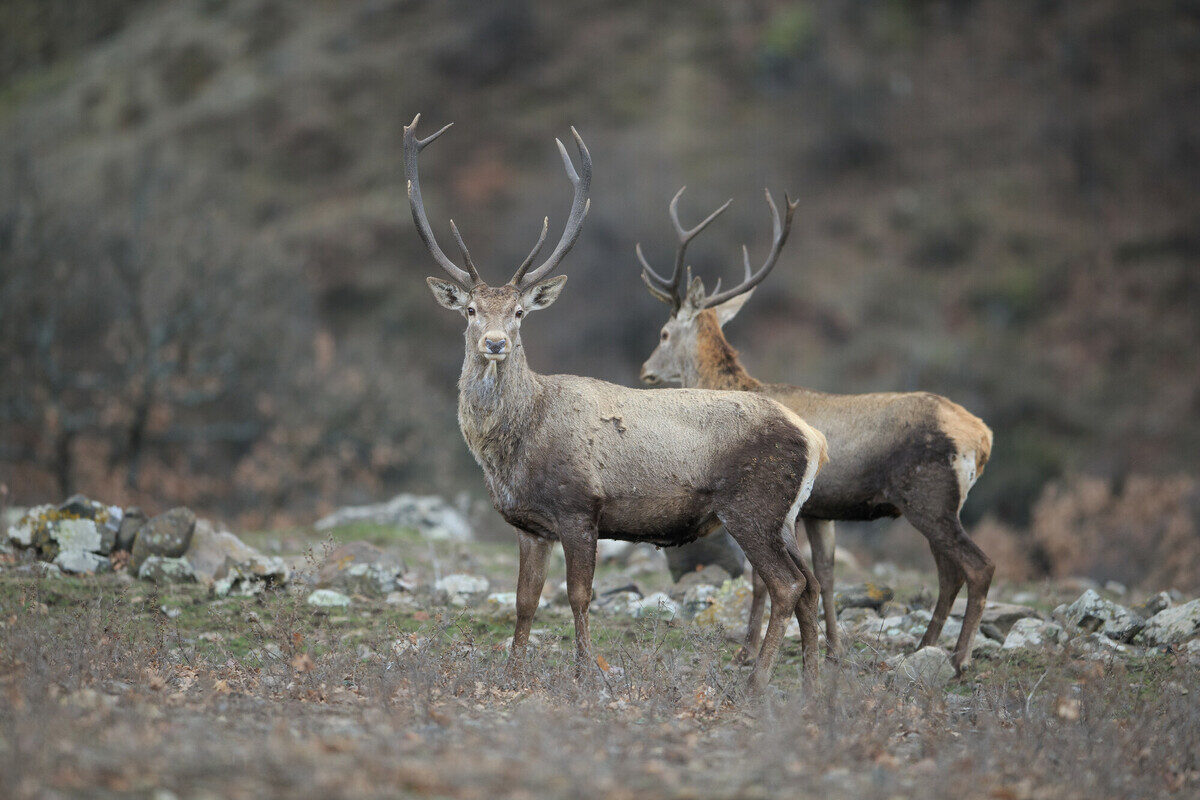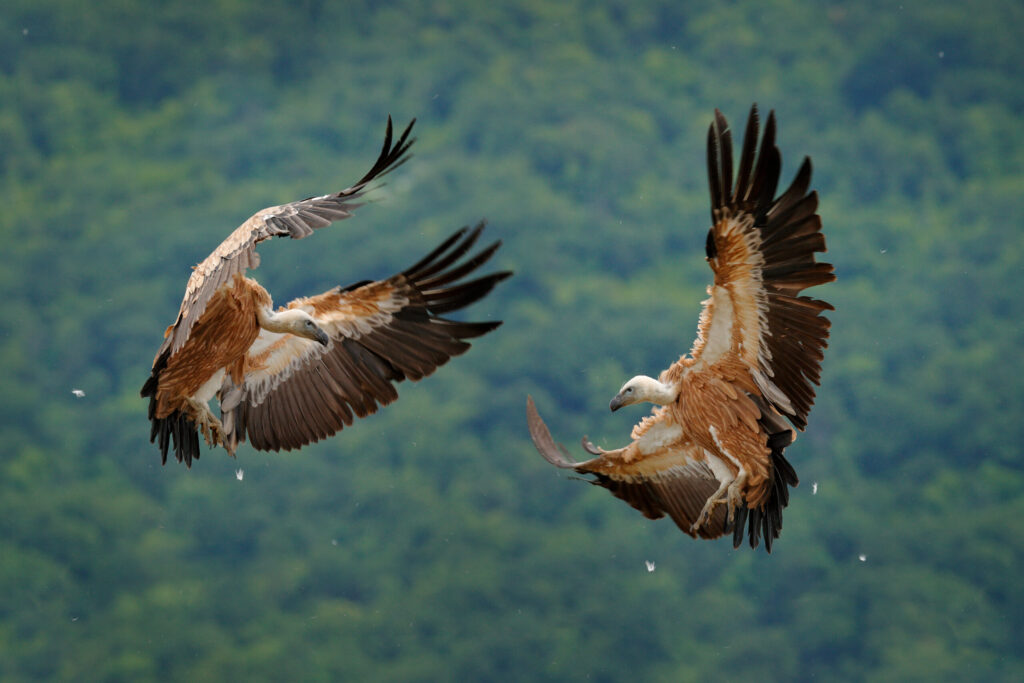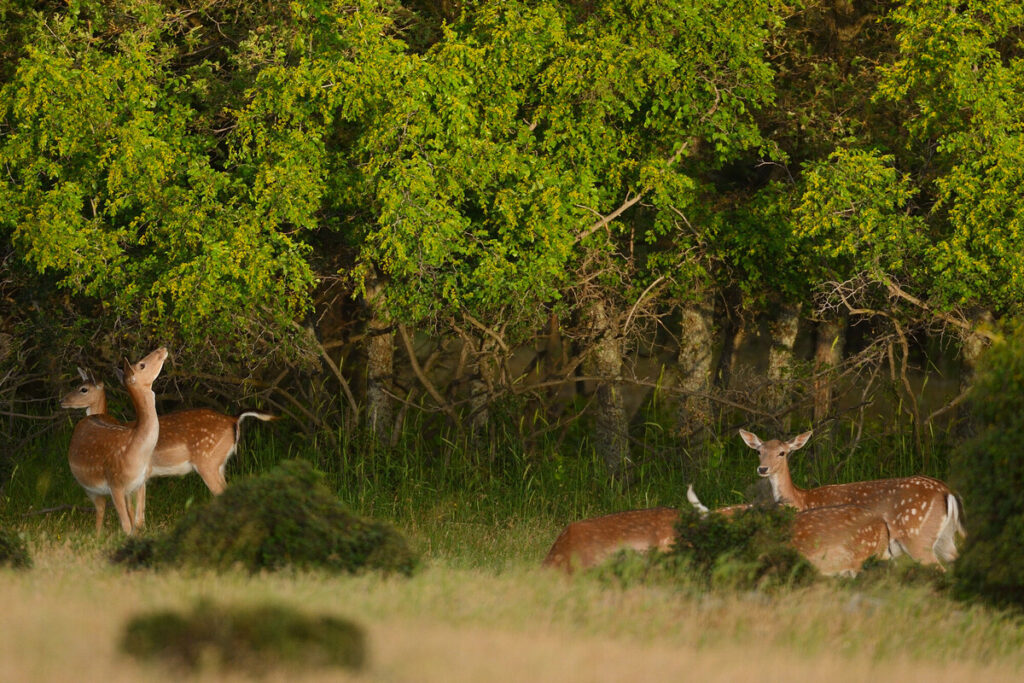A long-term release programme means populations of red and fallow deer in Bulgaria’s Rhodope Mountains are gradually recovering. As the landscape becomes wilder and healthier, there are benefits for local communities too.

Reforging the circle
Rewilding works to recover and enhance natural processes, such as natural grazing, predation, and scavenging. In the Rhodope Mountains rewilding landscape in Bulgaria, the local rewilding team has been engaged in the restocking of fallow and red deer populations – long degraded by overhunting – for many years. There are now signs that growing populations of both species are providing an increasingly important level of food for the area’s endangered vulture species (griffon, cinereous and Egyptian), thereby helping to close the so-called “circle of life“.
“Today, vultures in the Rhodope Mountains regularly feed on the carcasses of deer killed by wolves,” says Stefan Avramov, a rewilding officer attached to the Rewilding Rhodopes team. “Research has shown that a few years ago, red deer carcasses comprised less than 1% of the food of local griffon vultures, whereas they now comprise between 1.5% and 2%. With regard to fallow deer carcasses, the number has increased from 8.5% to around 10%. These numbers may be small, but rewilding is a long-term process – they will increase as deer populations continue to grow.”

Record-breaking releases
Over the last few months, a total of 17 red deer and 96 fallow deer have been released into the Rhodope Mountains rewilding landscape, adding to the populations of deer already established by the local rewilding team. Another 35 red deer are scheduled for transport and release by the end of February.
In what has become Bulgaria’s largest ever deer reintroduction programme, more than 600 fallow deer and 50 red deer have now been reintroduced and restocked in the Eastern Rhodopes since 2015, creating several, increasing sub-populations of the two species. The rewilding team typically releases both species of deer in the winter months, because the team have to use the hunting season in Bulgaria to trap and translocate the animals.
“Our goal is to restore two of the three deer species living in Bulgaria throughout the Eastern Rhodopes,” explains Stefan Avramov. “Going forwards, we expect to release several hundred more animals, helping to advance nature recovery and creating a healthier, wilder landscape where food webs are more complex. More deer not only means more food for vultures, but for other scavengers and predators too.”

Multiple co-benefits
The growing deer populations of the Eastern Rhodopes are not only good news for predators and scavengers. Free-roaming deer can contribute to the creation of half-open, half forested habitats that can support thriving populations of many other wildlife species, such as reptiles and insects. As deer populations in the Eastern Rhodopes grow, they will play an increasingly important role grazing on shrubs and trees. Complimenting the impact of other wild herbivores, such as horses and European bison, this will help to maintain the biodiversity-rich, mosaic landscape of the area.
As part of an increasingly wild landscape, the growing fallow and red deer populations of the Eastern Rhodopes are also enhancing the attractiveness of the area as a year-round destination for nature-based tourism. More and more domestic and international visitors are coming to see species such as wolves, vultures, European bison, wild horses and the deer themselves, which is providing a much-needed economic boost for local communities. Rewilding Europe Travel offers an exciting range of Rhodope Mountains-based experiences.
“Tourism in the area has definitely grown over the last few years,” says Polihron Karapachov, an enterprise officer attached to the Rewilding Rhodopes team. “In Madzharovo, for example, which is one of the local tourism hotspots, the number of hotels and guesthouses has increased from eight to 12 since 2015, and a new hotel will be opened soon. In some local municipalities, such as Madzharovo and Ivaylovgrad, the number of overnight stays has doubled over the same time period.”
“During the Covid-19 pandemic, many Bulgarians wanted more outdoor experiences and stayed in the country, visiting areas such as the Eastern Rhodopes. In terms of international visitors, I suspect that we may reach pre-pandemic numbers this year.”
